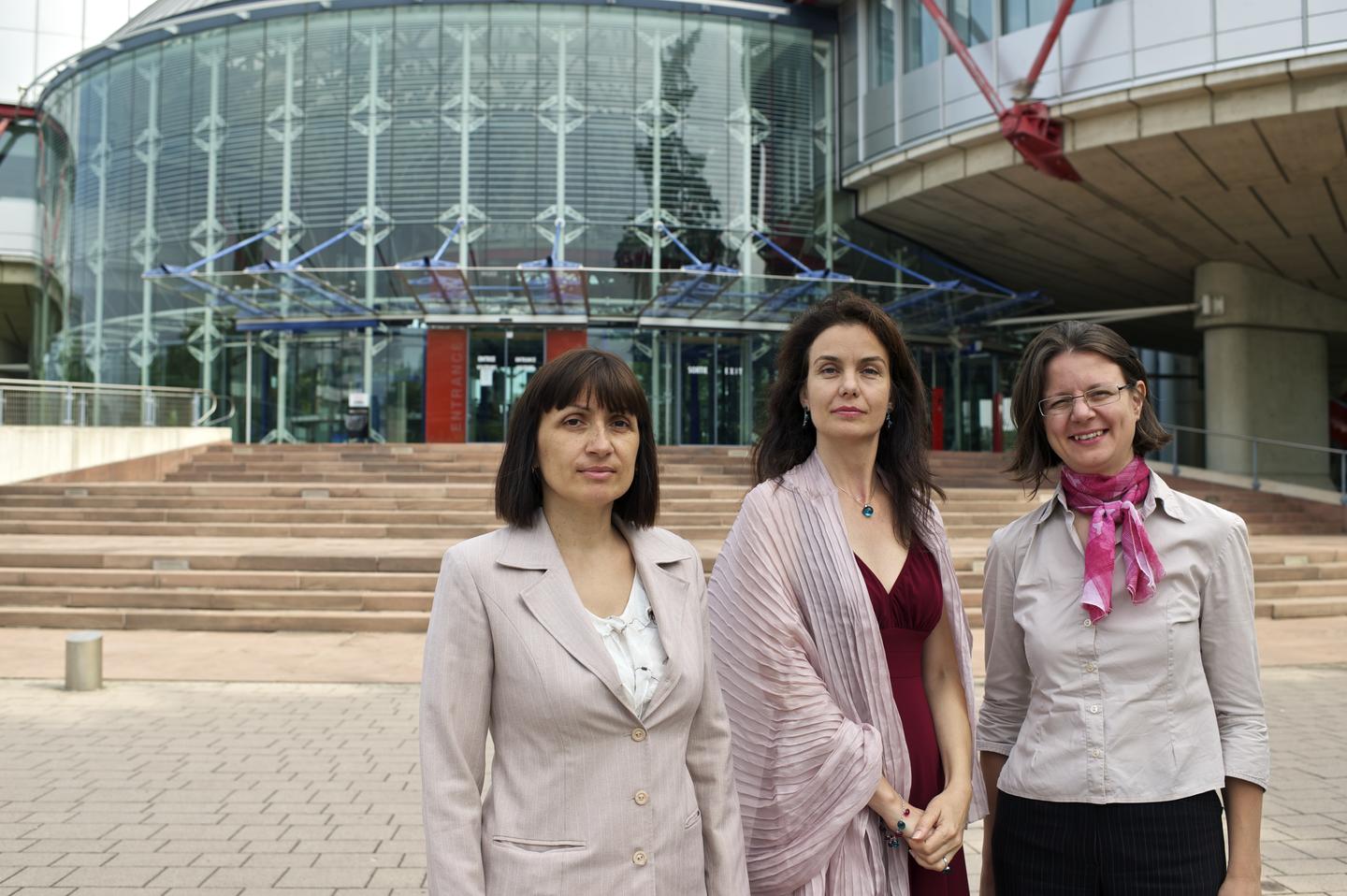The project will contribute to improve Bulgaria’s compliance with the European Convention on Human Rights.
“I will be more knowledgeable and confident in my future work when applying the European Convention on Human Rights”, said judge Iliana Baltova. Together with two other colleagues, she started her one year placement at the European Court of Human Rights in Strasbourg in the beginning of July. In total nine Bulgarian judges will benefit from this unique opportunity of gaining experience and obtaining practical knowledge about the work of the Court. This is the first time Bulgarian judges have been offered this opportunity. After the placement, the judges will share their knowledge as lecturers at the National Institute of Justice in Bulgaria.
Great opportunity
“This project is very important for Bulgaria and I am happy to be one of the nine judges selected as successful candidates to be placed at the European Court of Human Rights for one year. It is a great opportunity to transmit the knowledge obtained during this year to my colleagues in Bulgaria” said judge Irina Ganeva. She is a judge in the regional court of the Razgrad district in North-Eastern Bulgaria and believes the first-hand information about the practical work of the Court is very useful for the regional courts.
A fairer and more efficient justice system
The placement of the nine judges is a part of a Norway Grant programme contributing to judicial capacity building and cooperation as well as improvement of the efficiency of the Bulgarian justice system. Justice and home affairs is one of the main priority areas for the Grants in Bulgaria. The projects under this programme will facilitate judicial reform in Bulgaria in line with European standards, improve primary legal aid for vulnerable groups, especially for Roma people, and contribute to a more independent, transparent and efficient judicial system.
The five predefined projects under this programme were recently signed and started implementation in April 2013.
Improving the human rights situation
The overall aim of the programme is to improve Bulgaria’s compliance with the European Convention on Human Rights (ECHR), which Bulgaria became a party to when joining the Council of Europe in 1992. The Convention is the cornerstone for the protection of human rights and fundamental freedoms in Europe.
The Council of Europe is involved as a partner in this programme and its underlying projects. The European Convention of Human Rights is one of the founding treaties of the Council of Europe, and experts from the Council have considerable experience in offering technical assistance to its member states in how to respect human rights.
“This secondment is a great opportunity for me to look at the everyday working routine from a different angle, comparing the practice of the European Court of Human Rights and Bulgarian legislation. On my return, I have the opportunity to launch a discussion with Bulgarian colleagues on the possible review of some legal provisions in the Bulgarian legislation in line with European standards” said judge Tsveta Jeliazkova adding:
“Our society still needs some support in transmitting best European practices in certain areas of the judicial reform, and this project is a part of this process.”
All three judges agree that this placement will not be enriching only from a professional but also a personal point of view, as working in the international and multicultural environment gives a unique possibility of getting new contacts and broadening a comparative vision of different judicial systems across Europe.
About the Court
The European Court of Human Rights is an international court set up in 1959. It rules on individual or State applications alleging violations of the civil and political rights set out in the European Convention on Human Rights. Since 1998 it has sat as a full-time court and individuals can apply to it directly. In almost fifty years the Court has delivered more than 10 000 judgments. These are binding on the countries concerned and have led governments to alter their legislation and administrative practice in a wide range of areas. The Court’s case-law makes the Convention a powerful living instrument for meeting new challenges and consolidating the rule of law and democracy in Europe.
The Court is based in Strasbourg, in the Human Rights Building designed by the British architect Lord Richard Rogers in 1994 – a building whose image is known worldwide. From here, the Court monitors respect for the human rights of 800 million Europeans in the 47 Council of Europe member States that have ratified the Convention.
More information about the Court can be found in the Leaflet “ The Court in Brief” – www.echr.coe.int
This article is made with input from and in cooperation with the Council of Europe.
